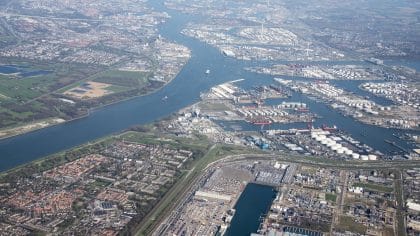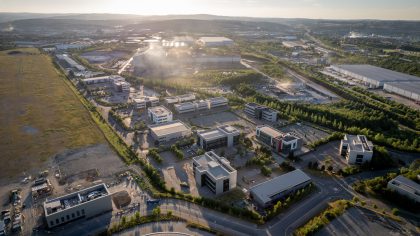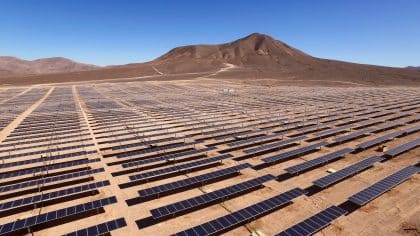All information in the datasheets is also available in ESDL (Energy System Description Language). You can find them in the Energy Data Repository (EDR).
Co-production via reverse water gas shift
In an endothermic reaction CO2 is reformed with H2 to produce CO and water, the reverse water gas shift (RWGS) reaction. We assume that all carbon is converted into CO (or recycled in the process). The reaction requires heat and runs at temperatures between 800-1000 °C and at pressures up to 30 bar to favour the equilibrium to CO (instead of CO2 and CH4). Some electricity is required to run the plant, e.g. for gas compression. The RWGS plant is a net electricity and heat consumer. Both H2 and CO2 are provided in this case from external sources. Often RWGS produces mixtures of CO and H2 in the ratio required for subsequent reactions. Here we assume we produce only CO, while additional H2 can be provided from the external source. Costs and energy use (for the purification, recycle, heating, and compression steps) are often associated to total mass flow capacities and include H2 as product (which is excluded from our process). This may cause some deviations in the estimates for costs and energy. CO2 + H2 -> CO + H2O DeltaH(298) = 42 kJ/mol.
Downloads
Co-production via reverse water gas shift (PDF)Gerelateerde publicaties

Industriële vraagrespons: groot potentieel, beperkte operationele inzetbaarheid
Wat industriële vraagrespons wel en niet kan betekenen voor leveringszekerheid richting 2030

Flexibiliteit op bedrijventerreinen
Een toekomstverkenning van het potentieel van energieassets

Kosten hernieuwbare energie verrassend vergelijkbaar voor Nederlandse en Saoedi-Arabische industrie
Comparison of future cost of renewable energy between regions